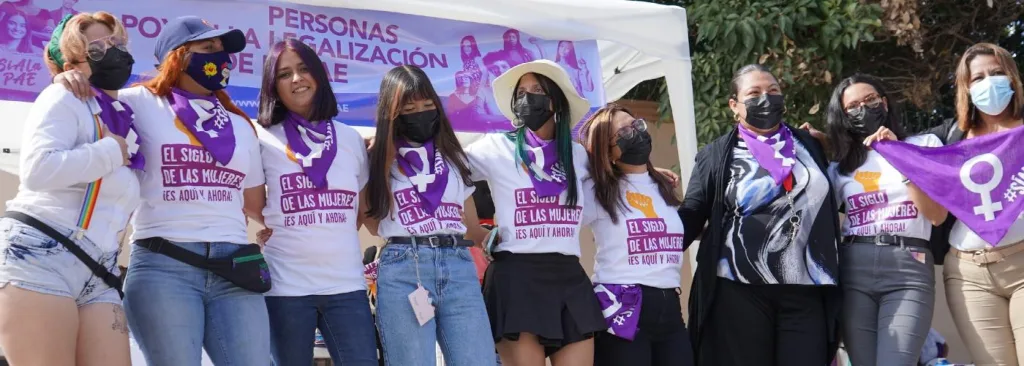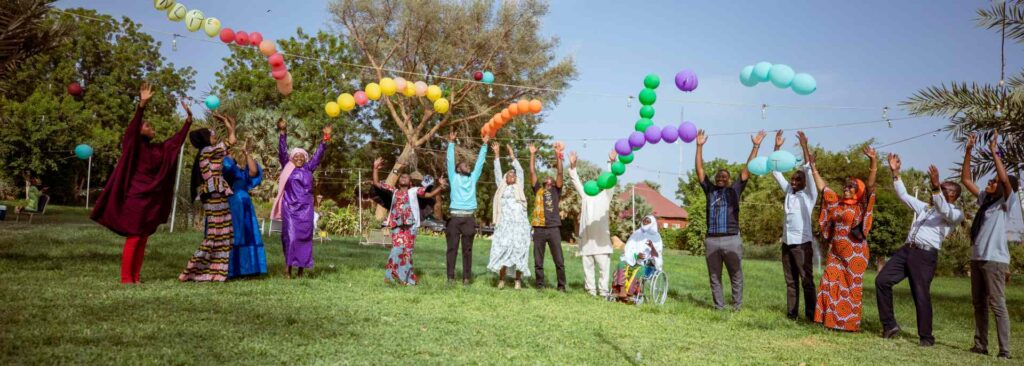Opinion piece by Onyonge Mengo, Hivos East Africa
The state of LGBTIQ+ movements in Africa for the past year or so has been hanging by a thread. Take for example Ghana’s Promotion of proper human sexual rights and Ghanaian family values bill, Uganda’s Anti-homosexuality bill (now assented into law), and now the proposal of Kenya’s Family Protection bill. Africa’s law makers continue to put the lives of queer Africans in jeopardy by dressing up state-perpetrated queer phobia in the robes of “African traditions and family values.”
It might seem as if these bills and other pieces of legislation attacking the human rights of queer people in the guise of promoting family values started recently. But that is far from the fact. In 2020, The Global Philanthropy Project (GPP) together with its member organizations and partners, published a report titled “Meet The Moment: A Call for Progressive Philanthropic Response to the Anti-Gender- Movement”.
Conservative religious and political forces behind the global anti-gender movement
In defining the anti-gender movement, the report highlights that in recent decades many long-standing anti-rights movements have rallied under the banner of a global “anti-gender” movement. They aim to codify and enforce the notion that biological sex represents the “natural” order, while gender is an invention and an “ideology.” This framework is weaponized by conservative, often radical, political and religious groups already engaged in attacking human rights and self-determination, denying climate science, and promoting authoritarianism.
They are joined by related movements and campaigns that oppose gender equality and equity, sexual and reproductive health and rights (SHRH), the human rights of LGBTIQ+ persons, and the goals and values of progressive and feminist movements.
Enormous financial resources flow to these anti-rights movements and the institutions that support them, contributing to global attrition of human rights infrastructures and the increasing rise of authoritarianism.
Changing Faces Changing Spaces Donor Pre-Conference
At the 8th Changing Faces Changing Spaces Donor Pre-Conference in Botswana, hosted by UHAI EASHRI from May 15 to 16, participants took stock of the situation. Funders from private and public foundations, NGOs, governments, corporations and multi-lateral agencies explored current funding for queer movements in the light of the GGP report’s findings. For the first time, the event included parallel pre-conferences by Trans, Lesbian, Bisexual, Queer and Gender Non-Conforming (LBQ-GNC) groups, Gay, Bisexual, Men who have Sex with other Men (GBMSM) groups, and Sex Workers’ movements in Africa.
It was not lost on those present that much more that needs to be done to support African queer and sex worker movements to ensure their success. Success in this case being understood as not only seeing movements and activists prosper beyond donor dependency and reliance, but also that funders play an extra role in ensuring the security and wellbeing of the activists who drive these movements.
Resourcing African LGBTIQ movements for success and sustainability
What can funders do to ensure African queer and sex worker movements are resourced for success and sustainability in the face of well-funded global anti-gender/anti-rights movements? Conference discussions considered several ways to do this effectively. Here is our call to all funders of the queer and sex worker spaces in Africa. While funders may have in place systems and processes that do not reflect the proposals highlighted below, it is a chance for them to adopt other practical ways of supporting queer and sex worker movements in Africa.
1. Centering wellness in resourcing communities
Organizing and movement building, especially in the current political context in most African countries, entails great physical, emotional and psychological burden. So funders should also support the mental wellness of activists, either through mental wellness grants or a budget line within an already existing grant. Costs may vary depending on the context. Partners implementing programs need a humane and practical attitude from funders from inception to the close out of projects. This is possible if funders are aware that activism is very emotionally taxing work. Even within the established procedures, there ought to be an extension of grace to implementing partners. In that respect, we could all borrow a leaf from FRIDA’s Happiness Manifesto.
2. Introduction and continuation of multi-year grants
Imagine the peace that comes with knowing that a community project you are working on does not have to come to an abrupt halt after a twelve months because the grant is ending. Imagine not having to mobilize resources around the clock to ensure that project staff are taken care of for at least a couple of years. While it might be impossible to completely stop resource mobilization for movements in Africa, it sure does take a load off if a funders support movements on a long-term basis as opposed to a few months of the year.
3. Funding infrastructure and processes should match the current context and last into the future
Embracing technology in grant-making and in the “post-covid” era means that funders must be aware of the circumstances in which different movements work and support them accordingly. Reporting processes should match the changing circumstances and strength of movements by adding other ways of reporting. For example, conversation-based reporting, audio-visual based reporting, and other alternate forms. Property purchases for partner organizations where the legal climate and security context allows can reduce general overhead costs and even set a foundation for steady revenue for partners.
Take a stand against anti-gender movement and channel resources to the cause!
By doing the above, funders can play a critical role in filling the gap between governments, other funders and rightsholders. They should use their position to further advocate for and bring resources closer to rightsholders. We should all strive to create and share learning opportunities amongst funders and amongst movements in Africa. We should all strive to set up and support strategic networks that improve the lives and experiences of queer people and sex workers in Africa. And we must take a stand against the anti-gender movement and channel resources to the cause!




